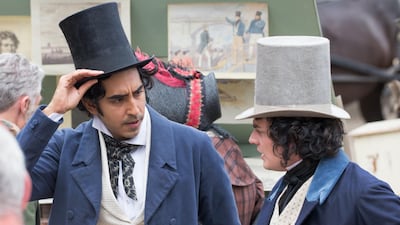A chance meeting with a friend led to a conversation about race in Britain. “I never mind people asking where I’m from. London,” he said. “But they often mean what is my racial background, and I am happy to answer that too. It’s India. There is nothing offensive in that question. Why wouldn’t people be interested?”
Our conversation began because there have been numerous examples up and down Britain, including from close friends of mine, of a nasty racial bitterness directed towards people from different races and backgrounds following Brexit. Residents of a block of flats in the city of Norwich woke up after Britain formally left the European Union to find anonymous notices on their doors wishing them a Happy Brexit Day from someone insisting that they now speak only the "Queen's English". Other friends have told me stories of a new nastiness from some – a minority – of our fellow British citizens.
As for me, a white male, I am clear that when it comes to racism I can offer empathy but not direct experience. And so against this background it was with some trepidation that I viewed what is an extraordinary British film, The Personal History of David Copperfield, based on the famous Charles Dickens novel.
The reason I was uneasy had nothing to do with the subject matter. I love Dickens and the crazy characters in the book: the slimy Uriah Heep, the charming and spendthrift Wilkins Micawber, and the great survivor, Copperfield himself. And my uneasiness had nothing to do with the co-writer and director, Armando Iannucci. He is a very British genius – a man who, as his name suggests, has a family background from Italy, but who is Scottish to his core. Like me, he was born in Glasgow.

Iannucci is best known in Britain for his political satire The Thick of It, although a few years ago, he confessed to me that British politics had become so ludicrous that it was increasingly difficult to satirise in fiction that which was already ridiculous in fact. Iannucci then managed the (almost) impossible feat of making the former premier of the Soviet Union Joseph Stalin funny, in his feature film The Death of Stalin. He is a man of exceptional talent and intellect.
However, his Copperfield project had been framed for me in an odd way by a news report a couple of years ago. It said it was "a landmark instance of colour-blind casting". That was because Copperfield was to be played by Dev Patel, a Londoner of Indian heritage. Brilliant, I thought. Patel is a wonderfully talented actor. Talk of “colour-blind casting” might or might not be true but I wondered, is that the way to approach a work of art? Isn’t the way to engage with a film or a novel or a painting to watch, look, read or listen and make up your own mind whether it has value?
Glenda Jackson played King Lear to great acclaim. Should we consider that to be "gender blind" casting or just a new opportunity for a great actor interpreting the most moving story of old age in English literature? For me, Patel simply was David Copperfield – funny, sad, angry, witty, charming – amid a cast of talented actors who happened to have different racial backgrounds. Good. So, can we acknowledge that fact, take note that talented people appear in a hugely inventive film and get over ourselves, please?
Yes, of course, there is a massive industry debate about the Baftas and Oscars and why some films are apparently overlooked – an example of this being Harriet, the story of Harriet Tubman, born into slavery in 19th-century America and a hero of the abolitionist movement for her activism and bravery. Yes, women directors do not get many of the big movies. Yes, shortlists for the Baftas and Oscars do repeatedly seem to be skewed towards white males of a certain age. All this (and more) is open to argument – and change.
That said, the casting of a great actor (Patel) in a part that was custom-fit for an energetic, charming and intelligent actor was – as I watched the film – so obviously a great decision that whether the casting was “colour blind” or not did not occur to me. I was entertainingly lost in Dickens’ and Iannucci’s marvellous story, as were may others, including critics. Mark Kermode, with whom for some years I presented a BBC film review programme, loved Copperfield as much as I did, but complained on Twitter about the negative reaction to his review from “whingebagging closet racist[s]".
The great English poet Samuel Taylor Coleridge talked of successful drama as "that willing suspension of disbelief for the moment, which constitutes poetic faith". The Iannucci film asks us to “suspend disbelief” about David Copperfield, including one lovely moment when we see him as an adult witnessing his own birth. It worked. It is called art.
Those who have a problem with Patel playing Copperfield do not need to suspend disbelief. They need to suspend their own prejudices.
Gavin Esler is a journalist, author and presenter


